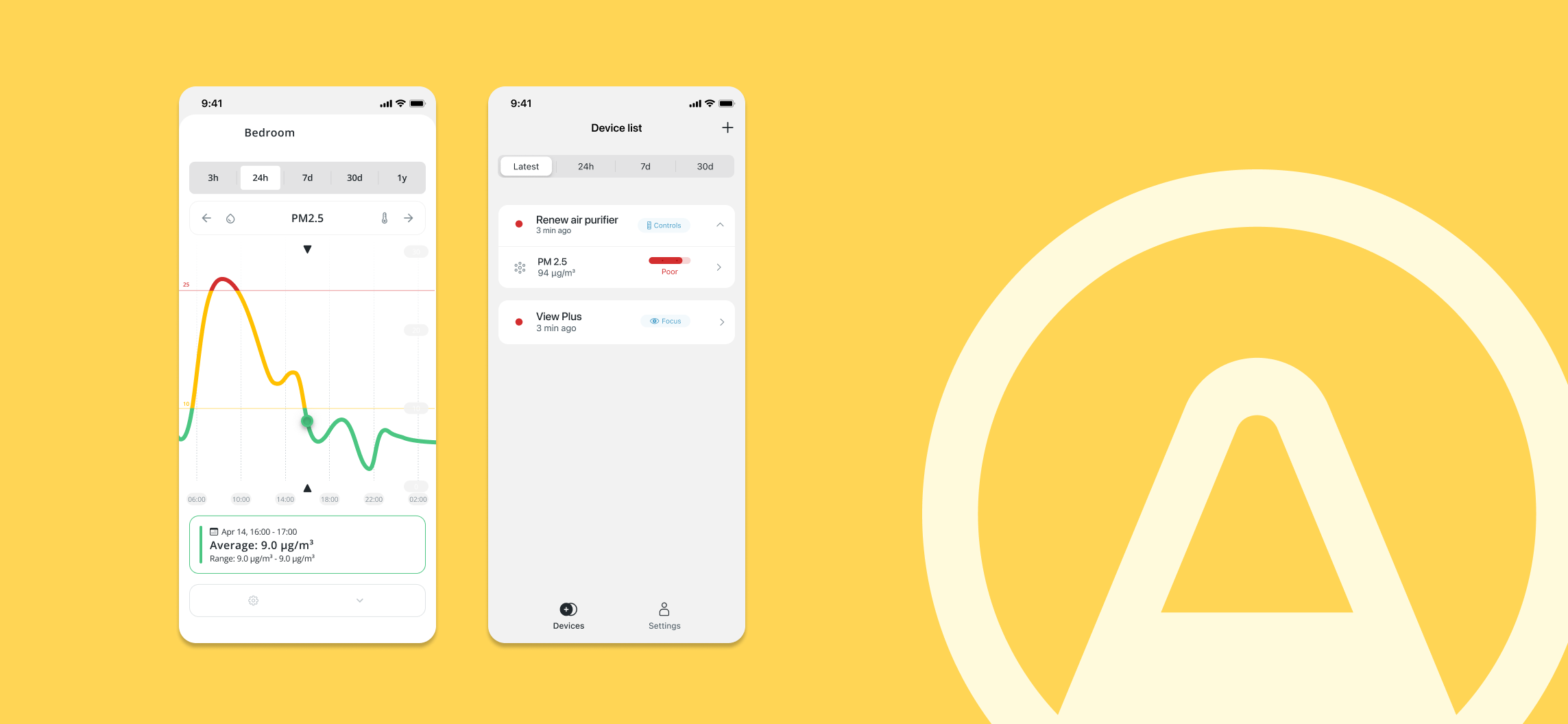Clearing the air: research, tips and best practices
Curious about air purifiers? Wondering if they actually work? Discover the impact of air purifiers on your indoor environment. These devices can clean indoor air by eliminating dust, pollen, pet dander, and smoke. Ideal for allergy and asthma sufferers, they can significantly improve your home environment and help you breathe better. When choosing one, consider factors like filter type, room size, noise level, and energy efficiency to ensure it meets your specific air quality needs effectively.
How do air purifiers work?
Air purifiers are devices designed to improve indoor air quality by removing various contaminants from the air. They function by drawing in air using a fan and passing it through one or more filters. This process traps particles and pollutants before releasing purified air back into the room, resulting in cleaner indoor air. These filters can be made of different materials, such as paper, fiberglass, or mesh. The effectiveness of an air purifier depends on the quality of the device, the type of filter used, and the volume of air it can handle.
The most efficient filter for particles is the High-Efficiency Particulate Air (HEPA) filter, which can capture at least 99.5% of particles in the air that are 3 microns or smaller. In addition to HEPA filters, some air purifiers use electrical attraction to trap particles, like electrostatic precipitating cleaners, electret filters, and negative ion generators. Adsorbent filters can help mitigate odors, while UV purifiers use ultraviolet light to eliminate bacteria and mold on HVAC indoor cooling coils. However, their effectiveness can vary based on the specific model and design of the air purifier.
The Renew air purifier stands out for its effective 4-stage filtering approach to clean the air effectively. The outer pre-filter captures large particles like pet hair and dust. Inside, the washable pre-filter handles smaller particles such as pollen and dust. The heart of the filtration lies in the HEPA-13 filter, which removes 99.97% of particles as small as 0.3 microns. Lastly, an active charcoal filter absorbs gasses (VOCs) and odors from sources like smoke and cooking. This layered approach results in cleaner air, improved sleep and peace of mind.
What do air purifiers filter?
Air purifiers can effectively filter out a wide range of airborne pollutants and contaminants from the air, including:
- Dust and dust mites
- Pollen and other allergens
- Pet dander and hair
- Mold and mildew spores
- Smoke particles from cigarettes, wildfires, and other sources
- Bacteria and viruses
- Volatile organic compounds (VOCs) from cleaning products, paints, and other household items
The choice of the air purifier and its filters can influence their effectiveness in removing these particles from the air. Products with a layered filtering system, such as the Renew, effectively capture a wide range of particles in various sizes, ensuring an effective purification of indoor air.
Can air purifiers filter the outdoor air that enters your home?
Air purifiers can help reduce the amount of indoor air pollutants present in your air, whether they come from indoors or outdoors. To minimize the entry of outdoor contaminants and improve indoor air quality further, you may consider additional measures like sealing gaps and cracks in your home, using weather stripping, and installing screens on doors and windows. For personalized advice on improving your home's air quality, consulting a professional can provide insights into other potential measures tailored to your specific needs and environment.
Are air purifiers worth the money?
Whether an air purifier is worth the investment depends on your specific needs and circumstances. They can be valuable in the following circumstances:
- Health issues: If you or someone in your household suffers from allergies, asthma, or respiratory problems, an air purifier can help alleviate symptoms by reducing indoor air pollutants.
- Location: Living in an area with high air pollution or experiencing frequent wildfires can make air purifiers more worthwhile, as they can help mitigate the effects of outdoor pollutants.
- Comprehensive approach: Air purifiers work best in a broader strategy for maintaining healthy indoor air. This includes monitoring the air in every room, reducing sources of pollutants, ensuring adequate ventilation, and making improvements to your heating and cooling systems.
- Costs: Consider the initial purchase price, operational costs, and filter replacement expenses. Energy-efficient models with Energy Star certification can help reduce ongoing costs.

What does the research say?
Research shows that purifiers with a HEPA filter have been shown to benefit individuals with allergies and asthma, as well as support cardiovascular health. However, the research also suggests that air purifiers may not be particularly useful for certain pollutants, such as mold, nicotine, gaseous contaminants, animal dander, cockroach allergens, some VOCs, and larger, heavier allergens like dust mites. It's essential to understand the limitations of air purifiers and consider them as part of a broader approach to maintaining clean indoor air.
What should I look for in an air purifier?
When choosing an air purifier, consider the following factors:
- Filter type: Look for models with HEPA filters for effective particle removal.
- Clean Air Delivery Rate: Select an air purifier with an appropriate capacity for the size of the room.
- Noise level: Consider the noise generated by the device, especially if it will be placed in a bedroom or living area.
- Energy efficiency: Opt for energy-efficient models, indicated by certifications like Energy Star.
- Maintenance: Evaluate the ease of filter replacement and the associated costs.
- Additional features: Some air purifiers offer features like timers, air quality sensors, and remote controls, which can enhance convenience.
How Airthings indoor air quality monitors can help ensure the effectiveness of your air purifier at home
Air quality monitors provide real-time data on various air quality parameters, enabling you to make informed decisions about the operation of your air purifier. Here's how Airthings can assist in this process:
Continuous monitoring: Airthings monitors continuously track key air quality metrics, including levels of particulate matter (PM2.5 and PM10), volatile organic compounds (VOCs), temperature, humidity, and radon. Continuous monitoring ensures that you have up-to-the-minute information about the quality of the air in your home.
Baseline measurement: Before you start using an air purifier, it's essential to establish a baseline measurement of your indoor air quality. Airthings monitors allow you to understand the initial state of your air, identifying any existing issues with allergens, pollutants, or other contaminants. This baseline measurement serves as a reference point for assessing the purifier's impact.
Air purifier effectiveness: Once you've introduced an air purifier, you can monitor its impact on your indoor air quality using an Airthings monitor. Track changes in PM2.5 and PM10 levels, as these represent fine particles that the purifier should be capable of removing. Reduced VOC levels can indicate the air purifier's effectiveness in dealing with gasses and odors.
Data-driven decisions: Airthings monitors provide data in an easily understandable format, through a mobile app and web dashboard. You can observe trends to improve air quality and make decisions based on the data collected, such as adjusting the air purifier's settings or filter replacement schedules.
Optimal placement: Proper air purifier placement is crucial for its efficiency. Airthings monitors can help you identify specific areas of your home where air quality is a concern and guide you on the best placement for the purifier.

FAQ
Is it good to use an air purifier every day?
Yes! Using an air purifier daily can significantly improve indoor air quality, helping to reduce allergens, dust, and other airborne pollutants. Smart purifiers like Renew offer added ease by automatically adjusting to clean the air as needed, ensuring you breathe fresher and cleaner air throughout the day.
Do doctors recommend air purifiers?
An air purifier with a HEPA filter can effectively remove air contaminants in your home and help relieve allergy symptoms. However, it is always advisable to consult your doctor for specific health issues and concerns.
Do air purifiers really help with dust?
Air purifiers can be effective in reducing dust levels indoors, depending on their filtration system and capacity to capture airborne particles.
How long should you run an air purifier in a bedroom?
Most air purifiers can filter the entire indoor atmosphere in 30 minutes to 2 hours, depending on the room size and the purifier's capacity. Choosing an air purifier with a sufficient Clean Air Delivery Rate (CADR) for your room size is important. CADR indicates how quickly the purifier can filter air pollutants, ensuring efficient and effective purification. Consider using a purifier with Auto Mode, like the Renew, to maintain continuous purification. This feature adjusts filtration levels automatically, ensuring consistent air quality control even when the purifier is not actively running.
Does sleeping with an air purifier help?
Yes, sleeping with an air purifier can significantly improve the quality of your sleep. We spend about a third of our lives sleeping, and having cleaner air can reduce airborne allergens and pollutants that may disrupt sleep or contribute to snoring. This leads to more peaceful nights and better overall rest.












